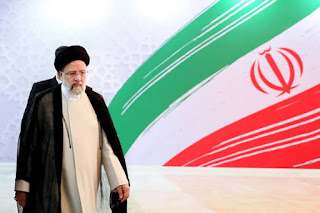Navigating the Geopolitical Landscape of the Red Sea: The Iranian Factor
The Red Sea, one of the world's busiest and most strategically important maritime thoroughfares, is witnessing a significant shift in its geopolitical dynamics with the growing influence of Iran. Tehran's efforts to cultivate closer ties with countries along the Red Sea coast, particularly Sudan, raise questions about the potential implications for regional security and stability.
**Iran's Strategic Calculus:**
Iran's interest in the Red Sea is driven by its desire to challenge the dominance of traditional regional powers, such as Saudi Arabia and Israel, and assert its influence over key maritime routes connecting Europe, Asia, and Africa. By strengthening its partnership with Sudan and other countries in the region, Iran aims to expand its geopolitical footprint and enhance its ability to project power beyond its borders.
**Security Challenges:**
The Iranian-Sudanese alignment poses significant security challenges for the Red Sea region, particularly in light of Iran's support for proxy groups like the Houthis in Yemen and Hezbollah in Lebanon. The potential for Iranian-backed attacks on maritime shipping and infrastructure raises concerns about the safety and security of international navigation and trade, prompting calls for increased vigilance and cooperation among regional and global stakeholders.
**Response Strategies:**
Addressing the security challenges posed by Iran's growing influence in the Red Sea requires a comprehensive and coordinated response from the international community. Diplomatic efforts should focus on promoting dialogue, de-escalating tensions, and addressing the root causes of conflict in the region. At the same time, security cooperation and maritime patrols can help deter and disrupt any attempts to disrupt maritime traffic and destabilize the Red Sea region.
**Opportunities for Collaboration:**
While the Iranian factor presents security challenges, it also offers opportunities for collaboration and engagement aimed at fostering peace, stability, and economic development in the Red Sea region. By working together to address common threats and challenges, countries in the region can promote mutual trust and cooperation, ultimately contributing to a more secure and prosperous future for all stakeholders.
As Iran's influence in the Red Sea continues to grow, it is imperative for regional and global actors to navigate the geopolitical landscape with caution and foresight. By understanding the motives behind Iran's outreach to countries like Sudan and developing proactive response strategies, policymakers can effectively address security challenges and promote peace and stability in this critical maritime corridor.



Comments
Post a Comment